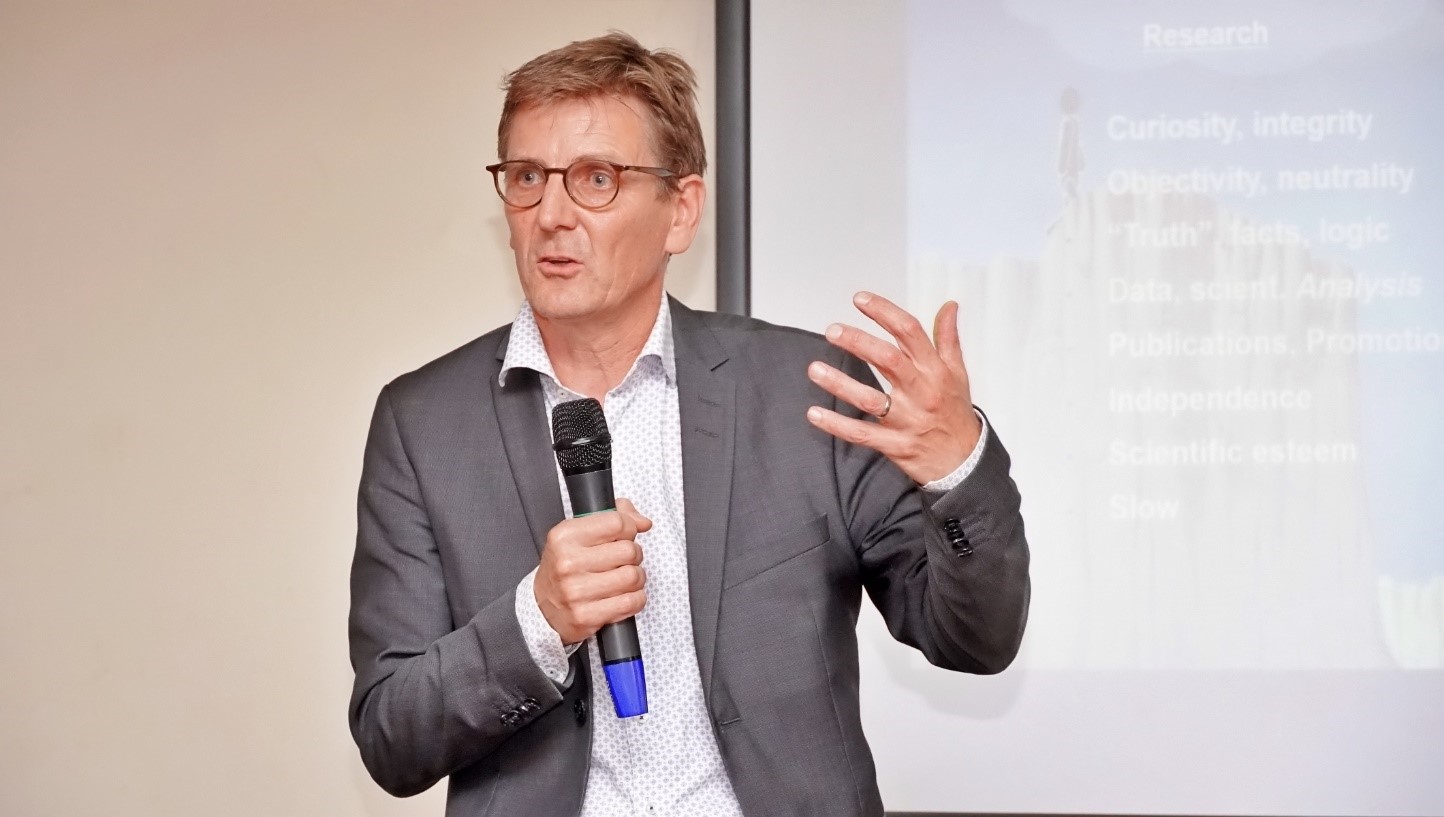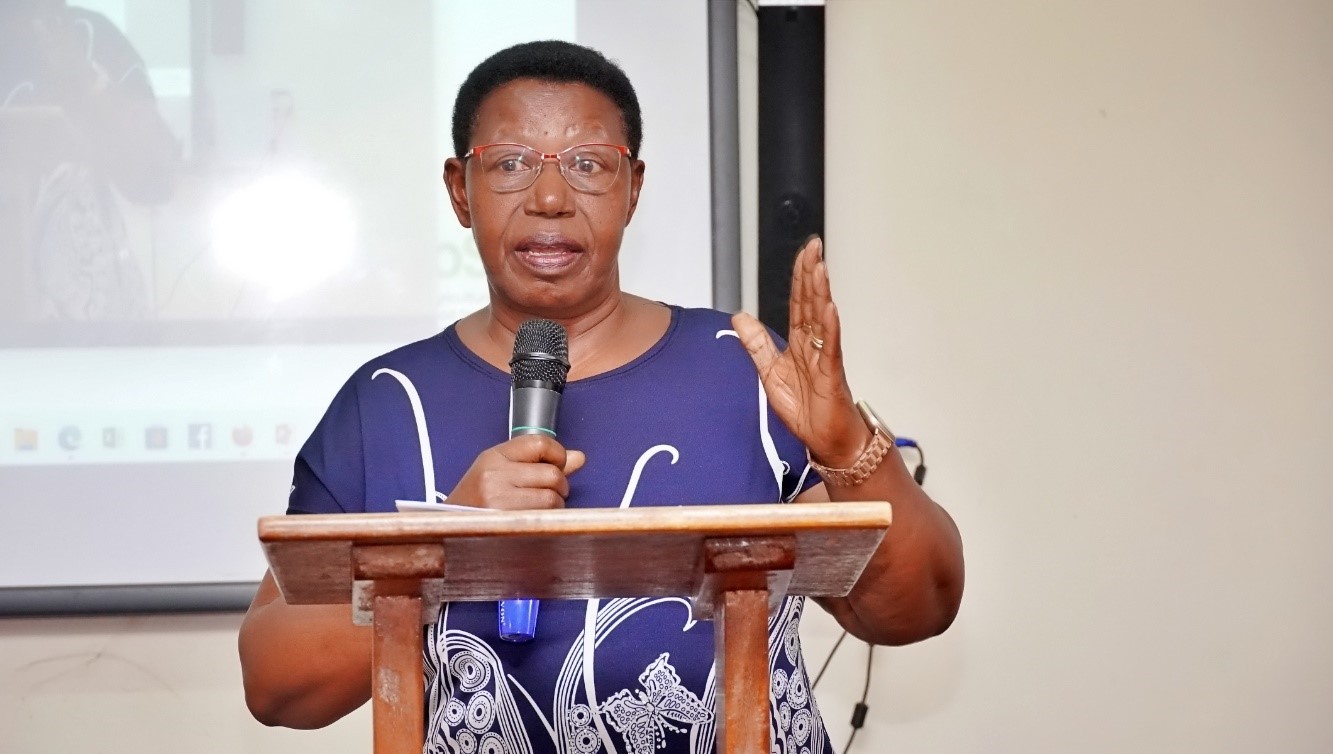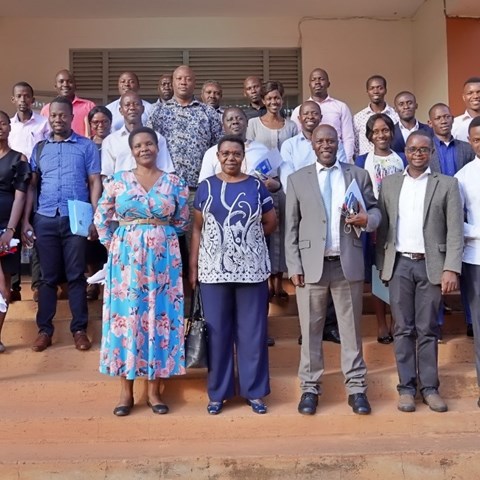While universities engage in impactful research, the major challenge has been how to translate research findings into policy and practice. To this end, researchers and politicians on September 27, 2022 gathered at Kyambogo University for a public lecture to discuss how to best translate science into policy and practice. The public lecture, which used a hybrid attendance format was hosted by the Vice Chancellor of Kyambogo University Prof. Eli Katunguka.

Dr. Daniel Slunge, University of Gothenburg, Sweden. Photo: James Tembo
The keynote address was given by Dr. Daniel Slunge from the University of Gothenburg, Sweden. Dr. Daniel engaged participants in appreciating the role of translating science into policy and practice if they are to influence decision making in the country.
He called on researchers to be strategic by undertaking policy relevant research which entails focusing on policy-relevant problems and addressing pressing national problems with the research. He also called on researchers to engage in high quality research which will translate into a strong research portfolio.
Researchers, he advised, have got to bridge the gap between research and policy by doing good research, analysing the context of the research, developing a strategy for interaction and impact, developing networks and being persistent and opportunistic.
Academic institutions on their part have got to develop skills and capacity for stakeholder and policy engagements, build strong networks with the public, private sectors and civil society as well as revise the incentive structure within academic institutions.

Hon. Miria Matembe from the Uganda Parliament. Photo: James Tembo
Speaking as a former legislator in the Uganda Parliament and also a social and gender activist, Hon. Miria Matembe, weighed in on what out to be the relationship between research and policy.
Academic Institutions, she said, ought to distinguish between academic research, innovations research, evaluative research, advocacy research, and target appropriate audience for policy purposes.
She advised researchers to deliver research findings and conclusions in a palatable form and avoid unsolicited opinions. The presentation of the policy documents ought to be brief and to the point as legislators might not have time to read lengthy documents.
Establishing partnerships and synergies with think tanks such as ACODE, African Leadership Institute, Great Lakes Institute for Strategic Studies will help reach out to policy makers and prompt then to make evidence-based policy.
Hon. Matembe concluded by saying that Uganda particurlarly needs policy-minded researchers and research-minded policy makers, if it is to benefit from the wealth of knowledge generated by universities.
Prof. Katunguka appreciated the participants and pledged that the university would continue to hold similar dialogues with policy makers such as members of parliament and technocrats.



